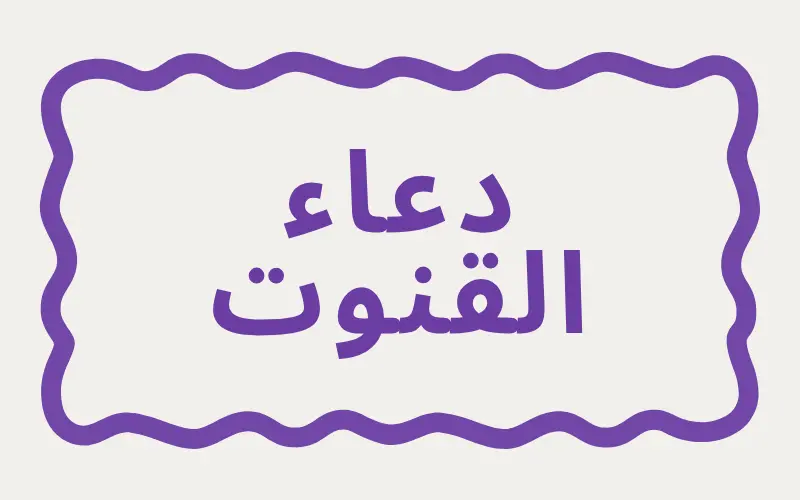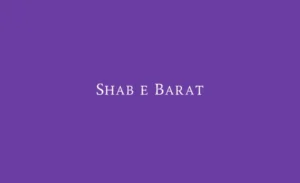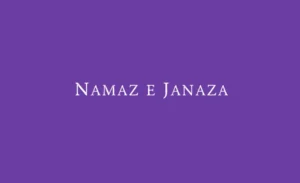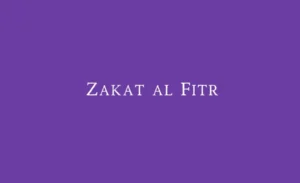Dua e Qunoot (دعاء القنوت) is a special supplication recited during the Witr prayer, which is part of the Isha (night) prayer in Islam. The term “Qunoot” (قنوت) means “obedience,” “devotion,” or “humility.” It is a heartfelt plea to Allah (SWT) for guidance, strength, and forgiveness.
Reciting Dua e Qunoot is a Sunnah, meaning it is a practice of the Prophet Muhammad (peace be upon him), especially emphasized during the Witr prayer. It reflects the sincerity of a believer seeking divine help in times of need.
Importance of Dua e Qunoot in Islam
The importance of Dua e Qunoot lies in its timing and meaning. It is recited in the final rak’ah (unit) of Witr Salah, especially during the last part of the night when Allah’s mercy is abundant. The Prophet Muhammad (SAW) often recited it in times of calamity or distress, making it a powerful and emotional supplication.
Key virtues include:
- Demonstrating submission and reliance on Allah
- Seeking protection and guidance
- Asking for forgiveness and mercy
- Encouraging mindfulness and humility in prayer
Arabic Text of Dua e Qunoot
Below is the authentic Arabic text of Dua e Qunoot:
اللهُمَ اهْدِنِي فِيمَنْ هَدَيْتَ، وَعَافِنِي فِيمَنْ عَافَيْتَ، وَتَوَلَّنِي فِيمَنْ تَوَلَّيْتَ، وَبَارِكْ لِي فِيمَا أَعْطَيْتَ، وَقِنِي شَرَّ مَا قَضَيْتَ، فَإِنَّكَ تَقْضي وَلَا يُقْضَى عَلَيْكَ، وَإِنَّهُ لَا يَذِلُّ مَنْ وَالَيْتَ، وَلَا يَعِزُّ مَنْ عَادَيْتَ، تَبَارَكْتَ رَبَّنَا وَتَعَالَيْتَ
Transliteration of Dua e Qunoot
Allahumma ihdinee feeman hadayta, wa ‘aafinee feeman ‘aafayta, wa tawallanee feeman tawallayta, wa baarik lee feema a’tayta, wa qinee sharra ma qadayta, fa innaka taqdee wa laa yuqda ‘alayka, wa innahu laa yadhillu man waalayta, wa laa ya’izzu man ‘aadayta, tabaarakta Rabbanaa wa ta’aalayta.
English Translation of Dua e Qunoot
O Allah! Guide me with those whom You have guided, and pardon me with those You have pardoned, and protect me with those You have protected, and bless me in what You have given, and guard me from the evil of what You have decreed. Surely You decree, and none can influence You. Surely he is not humiliated whom You befriend, and he is not honored who is Your enemy. Blessed are You, our Lord, and Exalted.
Dua e Qunoot Nazila (دعاء القنوت النازلة): Second Version
Dua e Qunoot Nazila is a special supplication made during times of crisis, calamity, or widespread hardship affecting the Muslim Ummah. The word “Nazila” (نازلة) comes from the root “nazala,” meaning something that descends suddenly, like a hardship or tribulation.
It is rooted in the Sunnah of the Prophet Muhammad ﷺ, who used to invoke this type of dua when the Muslims were suffering due to enemy attacks or natural disasters. It is not limited to war but can also be invoked during earthquakes, pandemics, genocide, oppression, and other widespread suffering.
Structure of Dua e Qunoot Nazila
There is no fixed wording, but the tone is one of deep humility, pleading for Allah’s help, protection, and justice. It generally includes:
- Praise of Allah
- Sending peace and blessings upon the Prophet ﷺ
- Supplications for relief, justice, and victory
- Condemnation of oppressors and enemies
- Specific mention of the afflicted (e.g., Palestine, Syria, Rohingya)
Sample Text of Dua e Qunoot Nazila (Arabic, Transliteration, English)
Here is the Dua-e-Qunoot Nazila for better guidance:
اللَّهُمَّ اهْدِنَا فِيمَنْ هَدَيْتَ، وَعَافِنَا فِيمَنْ عَافَيْتَ، وَتَوَلَّنَا فِيمَنْ تَوَلَّيْتَ…
Allahumma ihdina feeman hadayt, wa ‘aafina feeman ‘aafayt, wa tawallana feeman tawallayt…
O Allah! Guide us among those You have guided, and grant us well-being among those You have granted well-being…
Then continue with personalized, relevant parts:
اللَّهُمَّ انْصُرْ إِخْوَانَنَا الْمُسْتَضْعَفِينَ فِي فِلَسْطِين وَغَزَّة وَفِي كُلِّ مَكَانٍ
Allahumma unsur ikhwanana al-mustad‘afeena fi Filasteen wa Ghazza wa fi kulli makan
O Allah! Help our oppressed brothers and sisters in Palestine, Gaza, and everywhere.
اللَّهُمَّ اشْفِ مَرْضَانَا، وَارْحَمْ مَوْتَانَا، وَفُكَّ أَسْرَانَا، وَرُدَّ الْغُرَبَاءَ إِلَى أَوْطَانِهِمْ
Allahumma ishfi mardana, warham mawtana, wafukk asrana, warudd al-ghurabaa ila awtanihim
O Allah! Heal our sick, have mercy on our deceased, free our captives, and return the displaced to their homes.
اللَّهُمَّ عَلَيْكَ بِالظَّالِمِينَ، فَإِنَّهُمْ لَا يُعْجِزُونَكَ، اللَّهُمَّ زَلْزِلْ أَقْدَامَهُمْ وَخَرِّبْ دِيَارَهُمْ
Allahumma ‘alayka bizzalimeen fa innahum la yu‘jizunak, Allahumma zalzil aqdamahum wakhrib diyarahum
O Allah! Deal with the oppressors, for they cannot overpower You. O Allah, shake their feet and destroy their fortresses.
Alternative 3rd Version:
Arabic Text:
اللَّهُمَّ اهْدِنَا فِيمَنْ هَدَيْتَ،
وَعَافِنَا فِيمَنْ عَافَيْتَ،
وَتَوَلَّنَا فِيمَنْ تَوَلَّيْتَ،
وَبَارِكْ لَنَا فِيمَا أَعْطَيْتَ،
وَقِنَا شَرَّ مَا قَضَيْتَ،
إِنَّكَ تَقْضِي وَلَا يُقْضَى عَلَيْكَ،
وَإِنَّهُ لَا يَذِلُّ مَنْ وَالَيْتَ،
وَلَا يَعِزُّ مَنْ عَادَيْتَ،
تَبَارَكْتَ رَبَّنَا وَتَعَالَيْتَ.
اللَّهُمَّ انْصُرْ إِخْوَانَنَا الْمُسْتَضْعَفِينَ فِي كُلِّ مَكَانٍ.
اللَّهُمَّ اشْفِ مَرْضَانَا، وَارْحَمْ مَوْتَانَا، وَفُكَّ أَسْرَانَا، وَرُدَّ الْمُهَجَّرِينَ إِلَى أَوْطَانِهِمْ.
اللَّهُمَّ عَلَيْكَ بِالظَّالِمِينَ، فَإِنَّهُمْ لَا يُعْجِزُونَكَ.
اللَّهُمَّ زَلْزِلْ أَقْدَامَهُمْ، وَخَرِّبْ دِيَارَهُمْ، وَشَتِّتْ شَمْلَهُمْ، وَاجْعَلْ تَدْمِيرَهُمْ فِي تَدْبِيرِهِمْ.
Transliteration:
Allāhumma ihdinā fīman hadayta,
wa ‘āfinā fīman ‘āfayta,
wa tawallanā fīman tawallayta,
wa bārik lanā fīmā a‘ṭayta,
wa qinā sharra mā qaḍayta,
fa’innaka taqḍī wa lā yuqḍā ‘alayk,
wa innahu lā yadhillu man wālayta,
wa lā ya‘izzu man ‘ādayta,
tabārakta Rabbana wa ta‘ālayta.
Allāhumma unsur ikhwananā al-mustaḍ‘afīn fī kulli makān.
Allāhumma ishfi marḍānā, warḥam mawtānā, wafukk asrānā, warudd al-muhajjarīn ilā awṭānihim.
Allāhumma ‘alayka bizzālimīn, fa innahum lā yu‘jizūnak.
Allāhumma zalzil aqdāmahum, wakharrib diyārahum, washattit shamlahum, waj‘al tadmīrahum fī tadbīrihim.
English Translation:
O Allah! Guide us among those You have guided,
Grant us well-being among those You have granted well-being,
Protect us among those You have protected,
Bless us in what You have given,
And save us from the evil of what You have decreed.
Indeed, You decree and none can decree against You.
Indeed, the one You befriend will never be humiliated,
And the one You oppose will never be honored.
You are Blessed, our Lord, and Exalted.
O Allah! Help our oppressed brothers and sisters in every place.
O Allah! Heal our sick, have mercy on our dead, release our captives, and return the displaced to their homelands.
O Allah! Confront the oppressors, for they can never overpower You.
O Allah! Shake their footing, destroy their homes, scatter their ranks, and make their plans their own downfall.
When and How to Recite Dua e Qunoot
Dua e Qunoot is specifically recited in the Witr Salah, which is the final prayer after the Isha (night) prayer. It is generally recited:
- In the third rak’ah of Witr after ruku’ (bowing), while standing (Qiyam), before going to sujood.
- Some traditions also allow for its recitation before ruku’, depending on the school of thought (Hanafi vs. Shafi’i).
Steps to Recite Dua e Qunoot:
Here are some steps to recite Dua e Qanoot:
- Complete the first two rak’ahs of Witr Salah normally.
- In the third rak’ah, after ruku’, raise your hands and recite Dua e Qunoot.
- After finishing, continue with sujood and complete the prayer.
For Dua e Qunoot Nazila, it can be added in any regular congregational prayer when there is a public hardship, with the imam leading the congregation in this special supplication.
Variations Across Madhabs (Schools of Thought)
There are slight differences in how various Islamic schools of thought (madhabs) perform Dua e Qunoot:
Hanafi: Recite after ruku’ in Witr throughout the year.
Shafi’i and Hanbali: Prefer to recite before ruku’ and often emphasize its use during times of distress.
Maliki: Less emphasis on regular recitation; more situational.
Benefits of Reciting Dua e Qunoot
Reciting Dua e Qunoot strengthens your connection with Allah by expressing complete reliance, gratitude, and humility. It serves as a shield against hardships, brings spiritual peace, and revives the Sunnah of the Prophet ﷺ, especially during times of personal or collective distress. Below are some notable benefits:
Spiritual Protection: Seeks Allah’s shelter from misfortunes.
Increased Imaan (Faith): A direct connection with Allah through supplication.
Mindfulness in Worship: Encourages sincere and focused prayers.
Following Sunnah: Emulating the Prophet Muhammad’s (SAW) actions.
Conclusion: Elevate Your Prayers with the Power of Qunoot
Dua e Qunoot is a powerful and meaningful supplication that enhances the spiritual quality of your Witr prayer. Understanding its meaning, proper pronunciation, and significance helps you connect deeply with Allah (SWT) and gain immense rewards. Make it a habit to include this beautiful dua in your nightly prayers to seek mercy, guidance, and protection.
FAQs:
Q: Can I read Dua e Qunoot in English?
A: While it’s best to recite it in Arabic, you can read the English translation if you’re still learning.
Q: Is Dua e Qunoot mandatory in Witr?
A: It is Sunnah (recommended), not obligatory, according to most scholars.
Q: Can I make my own dua in Witr instead of Dua e Qunoot?
A: Yes, especially during Witr in Ramadan, you can make personal duas after or in place of Qunoot if you don’t know it yet.
– – – –
Share this blog with fellow Muslims and help spread the knowledge of this essential Islamic prayer.






